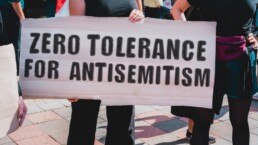Abolitionists have made great progress and the death penalty is in retreat. For capital punishment advocates, desperate measures have been required to keep the machinery of death running.
By Austin Sarat, Slate
Now more than ever there are two distinct worlds of capital punishment in the United States. It has long been the case that the death penalty has flourished in some regions of the country and in some states more than in others. And the release of the Death Penalty Information Center’s (DPIC) annual report for 2021 makes clear that the distance between those two divergent paths rapidly increased last year.

“The death penalty in 2021 was defined by two competing forces: the continuing long-term erosion of capital punishment across most of the country, and extreme conduct by a dwindling number of outlier jurisdictions to continue to pursue death sentences and executions,” The DPIC report noted. Capital punishment increasingly is used in just a few idiosyncratic locales and offers another fault line in this country’s fragmented political, legal, and cultural life.
As in many other areas of American life, supporters and opponents of the death penalty regard each other as enemies, not just as opponents. They see the world in fundamentally different ways and think of the political struggle over the death penalty as a struggle over fundamental values and different ways of life.
As Emory University historian Daniel LaChance explains, “These days, support for capital punishment is concentrated among whites, Protestants, and Republicans—key demographic constituencies of the conservative side of the late twentieth century culture wars…. Support for the death penalty is not only a tool for controlling crime, but also an expression of allegiance to values—personal responsibility, the sacredness of innocent life, and the firmness of a nation’s convictions—that they feel have degraded in the United States since the 1960s.”
Progressives, in contrast, see America’s continuing use of capital punishment as unjust, barbaric, and a sign of moral backwardness.
As a result, we can expect death penalty politics to grow more, not less, bitter and more intense, as the two worlds of capital punishment come to terms with new realities.
What are these new realities?
Recent Posts
VIDEO: A Blueprint For Countering American Fascism
July 26, 2024
Take Action Now Our First Annual Henry A. Wallace Symposium offered lessons from real-life heartland organizers on how to fight for a multiracial…
Gavin Newsom Orders Removal Of Homeless Encampments
July 26, 2024
Take Action Now “The only way to end homeless encampments in California is to end the need for homeless encampments,” an expert said.…
The Crackdown On Antisemitism Doesn’t Have Much To Do With Antisemitism
July 26, 2024
Take Action Now Republican lawmakers increasingly conflate anti-Zionism with antisemitism in an effort limit pro-Palestine speech and criticism of…
Netanyahu’s Unhinged And Bellicose Congressional Address Draws Scorn
July 25, 2024
Take Action Now ‘Our enemies are your enemies,’ the prime minister insisted, setting up confrontation with Iran. By Blaise Malley,…




